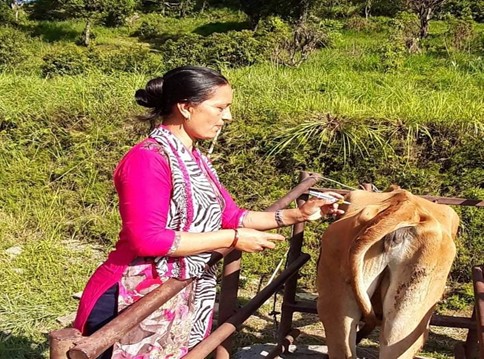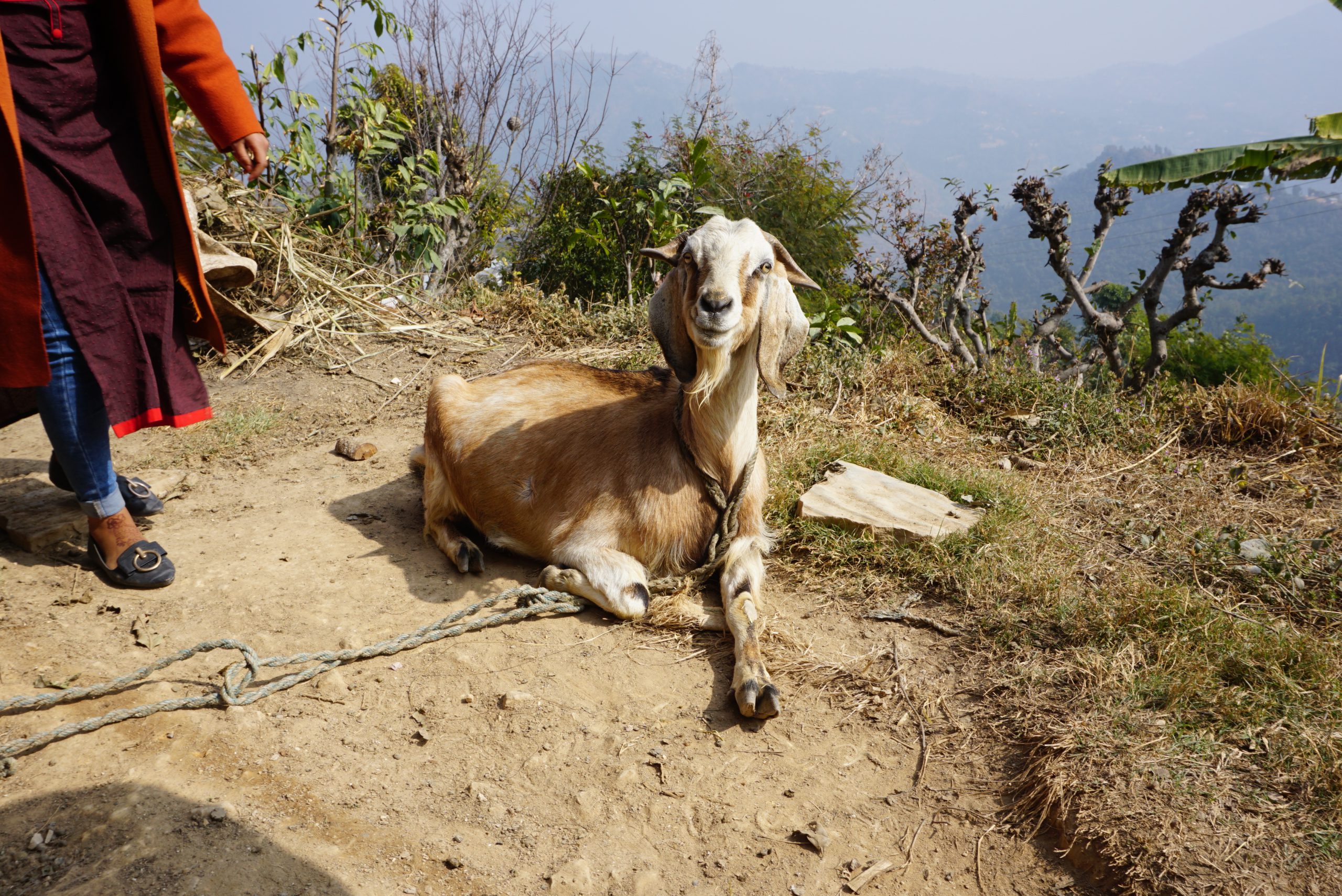
Ms. Kusumaya K.C. is part of a vital labor force in Nepal that brings animal health services to remote areas of the country. Before getting to work, however, she had to overcome obstacles to education that often limit rural women from realizing their potential.
Through a project of the Feed the Future Innovation Lab for Livestock Systems, Kusumaya participated in a new form of training by distance learning for Village Animal Health Workers. These para-vets are in high demand because of the small number of livestock veterinarians in Nepal’s countryside. They are certified to provide vital services such as castration.
Participants in the distance learning course, all women, received a Samsung tablet with videos and other digital content, and they also attended 10 days or more of in-person, hands-on training. This approach provided much greater flexibility and did not require 35 days away from the home, as the traditional course did. Compared to classroom training, the distance learning course helped 24% more women become community animal health workers.
Kusumaya found both short and long-term benefits from her participation. “I have increased my goat flock size and have more than 20 goats at present. The tablet with the digital course is a reference material for me and I can look at that whenever needed,” she said. Although her income has decreased during the COVID-19 pandemic, she expresses gratitude that she can provide technical livestock services in her community.
High Level Appreciation
Kusumaya’s statements were translated by Bhola Shrestha, a collaborator on this project and an employee of Heifer International in Nepal. He also shared a statement from Dr. Swoyam P. Shrestha, the director of Livestock and Fisheries Research for Nepal Agricultural Research Council, who reviewed the project’s digital training materials:
It is highly appreciated as it carries all the basic needs and requirements for Village Animal Health Workers (VAHW). It covers the importance of breeding, requirements of feed and fodder, and value of prevention of diseases in livestock in simple language. It also gives brief treatments and intervention procedures for various livestock and poultry diseases. After the completion of the provided courses, it makes the VAHW able to deal with livestock management, nutrition, and diseases in the absence of subject matter specialists. The pictures and video clips speak more than a thousand words and VAHW can understand and learn by visualizing. It’s a wonderful job and hard work done by the team.
The project team is led by Dr. Conner Mullally from the University of Florida, and it includes co-Principal Investigators from Kansas State University, the University of Georgia, the Nepal Agricultural Research Council, Interdisciplinary Analysts, and Heifer International.

The Gender Gap
For Mullally, a central research question was whether or not this distance learning platform would address gender-related issues. An experimental approach with more than 70 female students found that nearly twice as many completed the distance learning as compared to the traditional cohort.
“The answer is yes, this method can provide more access for women,” said Mullally, who is very encouraged by the results. “It feels fantastic. Even if questions remain, it’s still a big success because of the duration of the impact on the distance learners. It’s a very positive result and we should definitely continue on this path.”
Women and especially mothers have very high demands in rural households. They may be required to care for the family’s livestock because many Nepalese men travel abroad for work. Having the option to study at home provides an opportunity that otherwise might be unthinkable.
Currently the research team is conducting a survey of the distance learning participants that will complement findings from focus groups conducted in 2019. Government agencies in Nepal have expressed an interest in expanding the training for men and women.
Distance learning is only one aspect of this multi-year research project. Learn more about the project, Designing and evaluating innovations for development of smallholder female livestock cooperatives in Nepal, and its results on its webpage: https://livestocklab.ifas.ufl.edu/projects/dr-conner-mullally/.
 2
2
